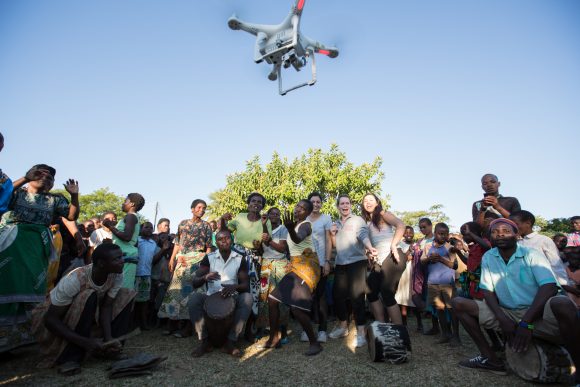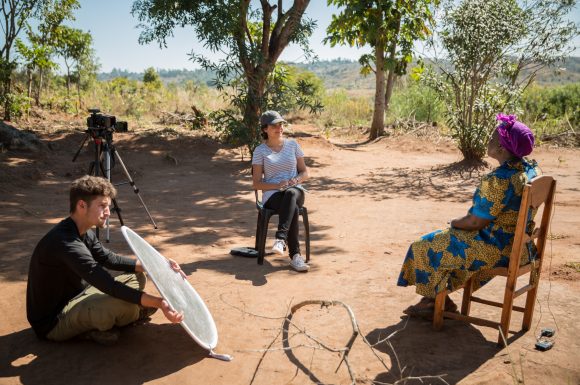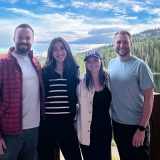In Malawi: Coming face-to-face with the stories behind the news
December 13, 2016
Students traveling to Malawi this summer as part of Dodge College’s Destination: Africa documentary program experienced basic challenges—such as learning how to conduct an interview through a translator—and deeper, more significant challenges such as trying to understand why superstition drives some people to murder others to collect their body parts for “good luck.” Their experiences were unique in another way—they are the last group to travel to Africa through this donor funded program.
Since 2009, the interdisciplinary program has sent students to countries all over the African continent, from Bostwana to Uganda, thanks to a $1-million donation from an anonymous donor. The purpose of the program has been to share the work of NGOs operating in various countries across Africa.
“I think all of us are pretty saddened to hear that the program is going away,” says Caroline Roffe (BFA/News and Documentary ‘17). “I’ve been hearing about it since my freshmen year from all of the people who have gone before. I hope there is a way to continue the program in some capacity, because it’s such a wonderful experience.”

For example, Roffe “learned how to communicate with people across continents,” she says, “many of whom don’t have the technology we have. I also learned how to conduct interviews through a translator, which is interesting, because we often only understood the gist of what was being said. It was a challenge, but we still managed to get what we need for the film.”
In Malawi, a small country nestled in the heart of South Africa, the students worked with the NGOs to create documentaries about the communities those organizations serve. One tells the story of a hip-hop dance troupe from a refugee camp that went on to become champions of Malawi’s Got Talent. Another documents the lives of children living in an orphanage in the southern part of the country, called Smile Malawi. But most horrific is the documentary exposing the plight faced by people with albinism, who are often sold off and murdered by people who believe their body parts will bring them good fortune.
“There’s nothing that can prepare you for hearing a story like that,” says Leon Dominguez-Lukic (BFA/News and Documentary ‘17), who interviewed the parents of David Fletcher, a young man with albinism who was butchered and found dead in Mozambique.

“When you read the news, you hear about death and violence and you assume it doesn’t affect you. It’s very different, though, hearing about it from someone’s parents. They haven’t even been able to get his body back, because they can’t afford to travel to Mozambique. They did a memorial service, but never buried their son.
“Hearing those words coming from a mother and father made it really hard to continue with the interview, because these people are still in mourning and in pain. I thought reading about it would make it easier, but it wasn’t. When it’s not just a number or a name on a list, when it’s real people, it changes how you feel.”
EDITOR’S NOTE: This article originally appeared in the Fall 2016 issue of In Production. Read other great articles, and catch up on older issues, by clicking here.


